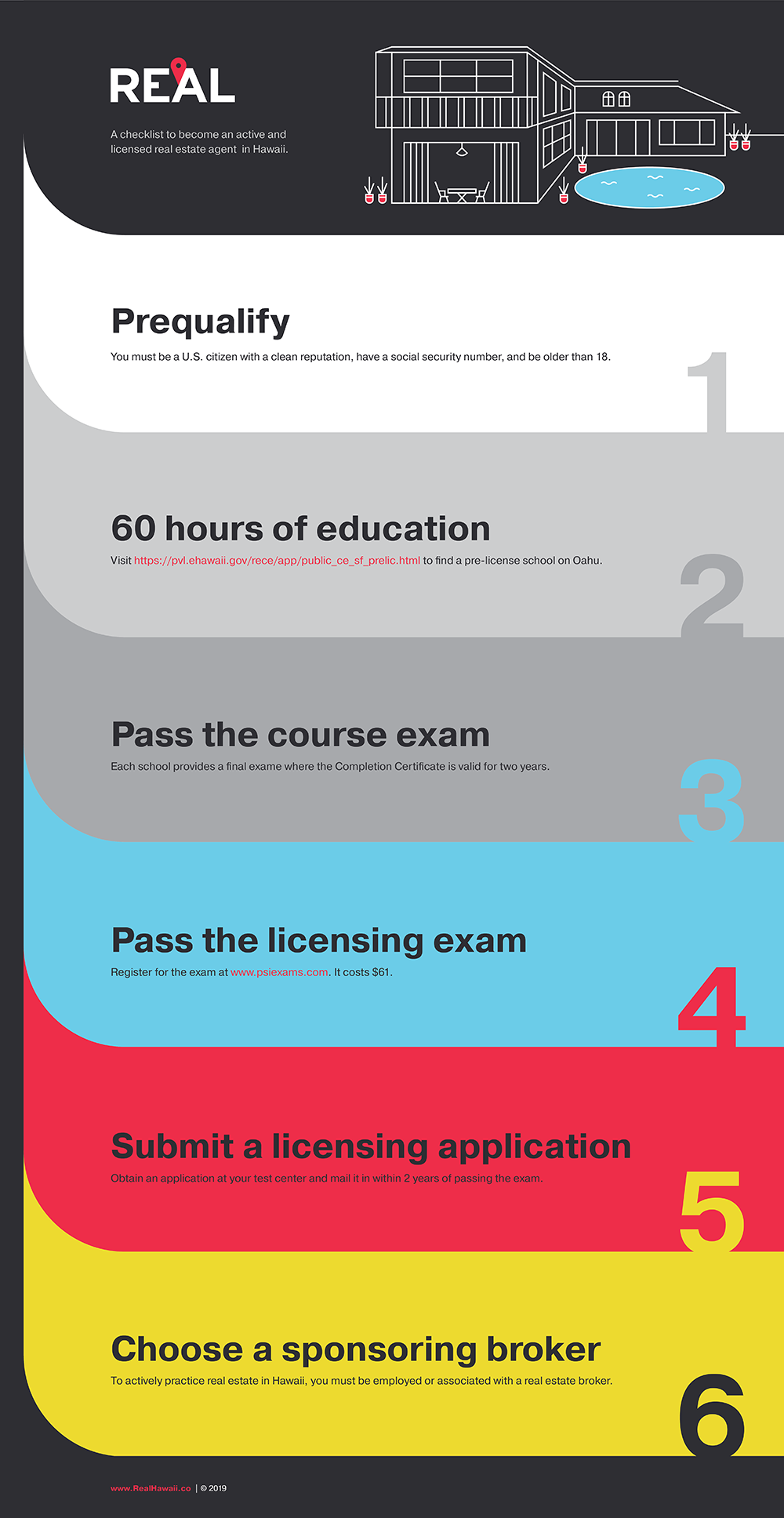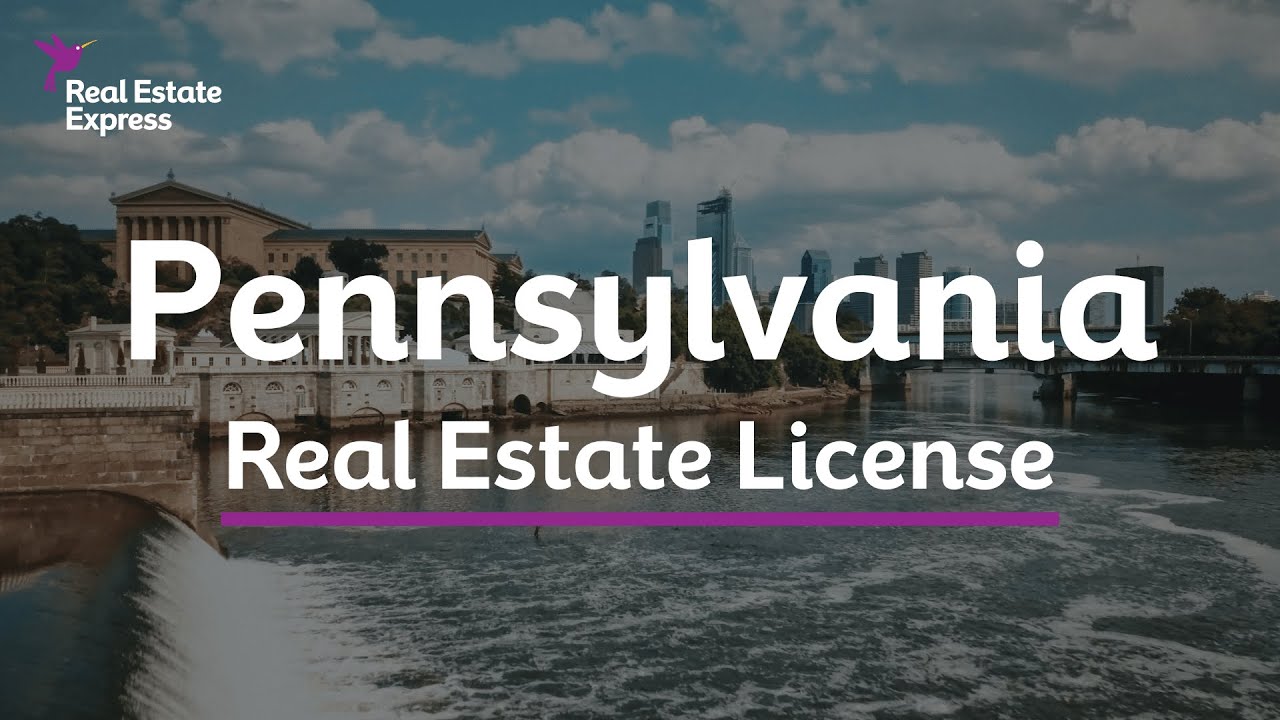
A real estate licence is a document issued to an individual by the state identifying them as licensed professionals in real estate. This certification can be obtained through both education and testing. It is important to understand the requirements for your state's real estate license before applying.
What is a Real Estate License and How Does It Work?
Agents and brokers who have a real-estate license can enjoy many benefits. These include access to new deals, risk minimization, and other benefits. It also offers bragging rights as a real estate professional, a fact that can give you an edge over other agents and investors in the industry.
Obtaining Your Real Estate License
To obtain a real estate license, you must pass the state real estate licensing exam. The exam generally consists of two parts. One covers federal real estate laws, general real estate principles, and the other states-specific law. The first part is often taken by candidates who have been licensed for a number of years, while the second is taken by those who are newly licensed.

The exam can be challenging, especially for those who are attempting their first real estate license. You can prepare by taking an online course, or attending classes in person at a community college or university. Many real estate courses offer practice tests, which can help you to familiarize yourself with the material before taking the exam.
Why Get a Real Estate License?
The main reason to obtain a realty license is to make more money. You'll be paid a commission on each sale or purchase that your clients make as a licensed realtor. In addition, you'll earn a finder's fee from referrals to other agents. This can be a great side business for someone looking to make extra income.
How to Get Your Real Estate License: What you Need to Know
Although the process for obtaining a license to be a real-estate agent varies from one state to another, most states require that you have a criminal record checked, a high school diploma and some education before you can begin. Depending on where you live, some states may require that you disclose any criminal convictions.
To be eligible to take the state exam, you will need to complete at least 45hrs of pre-licensing training. This coursework should cover national and local real estate principles and laws, as well as math courses that will prepare you for the exam. Classes can be taken at an online college, community college or public university.

Online Classes
Another advantage of a real-estate license is the ability to learn at your own speed. This allows you to fit your classes around your commitments. It can help increase retention and help you pass the exam.
An online course will help you pass the exam quickly and get you started in your new career. RealEstateU can help you enroll in an online course that covers everything you need for the state exam. This will allow you to start your career as a real estate agent right away.
FAQ
Do I need a mortgage broker?
If you are looking for a competitive rate, consider using a mortgage broker. A broker works with multiple lenders to negotiate your behalf. Some brokers do take a commission from lenders. Before signing up, you should verify all fees associated with the broker.
What should I look out for in a mortgage broker
A mortgage broker helps people who don't qualify for traditional mortgages. They compare deals from different lenders in order to find the best deal for their clients. There are some brokers that charge a fee to provide this service. Others provide free services.
How many times can I refinance my mortgage?
This is dependent on whether the mortgage broker or another lender you use to refinance. You can typically refinance once every five year in either case.
What are the benefits associated with a fixed mortgage rate?
Fixed-rate mortgages guarantee that the interest rate will remain the same for the duration of the loan. This will ensure that there are no rising interest rates. Fixed-rate loans have lower monthly payments, because they are locked in for a specific term.
Which is better, to rent or buy?
Renting is generally less expensive than buying a home. However, you should understand that rent is more affordable than buying a house. There are many benefits to buying a home. For instance, you will have more control over your living situation.
Should I rent or purchase a condo?
Renting could be a good choice if you intend to rent your condo for a shorter period. Renting will allow you to avoid the monthly maintenance fees and other charges. You can also buy a condo to own the unit. You have the freedom to use the space however you like.
What is a reverse mortgage?
Reverse mortgages are a way to borrow funds from your home, without having any equity. It allows you to borrow money from your home while still living in it. There are two types to choose from: government-insured or conventional. If you take out a conventional reverse mortgage, the principal amount borrowed must be repaid along with an origination cost. If you choose FHA insurance, the repayment is covered by the federal government.
Statistics
- Over the past year, mortgage rates have hovered between 3.9 and 4.5 percent—a less significant increase. (fortunebuilders.com)
- This seems to be a more popular trend as the U.S. Census Bureau reports the homeownership rate was around 65% last year. (fortunebuilders.com)
- Private mortgage insurance may be required for conventional loans when the borrower puts less than 20% down.4 FHA loans are mortgage loans issued by private lenders and backed by the federal government. (investopedia.com)
- This means that all of your housing-related expenses each month do not exceed 43% of your monthly income. (fortunebuilders.com)
- It's possible to get approved for an FHA loan with a credit score as low as 580 and a down payment of 3.5% or a credit score as low as 500 and a 10% down payment.5 Specialty mortgage loans are loans that don't fit into the conventional or FHA loan categories. (investopedia.com)
External Links
How To
How to Manage a Rent Property
While renting your home can make you extra money, there are many things that you should think about before making the decision. We will show you how to manage a rental home, and what you should consider before you rent it.
If you're considering renting out your home, here's everything you need to know to start.
-
What do I need to consider first? Before you decide if your house should be rented out, you need to examine your finances. You may not be financially able to rent out your house to someone else if you have credit card debts or mortgage payments. Also, you should review your budget to see if there is enough money to pay your monthly expenses (rent and utilities, insurance, etc. You might find it not worth it.
-
How much is it to rent my home? Many factors go into calculating the amount you could charge for letting your home. These include things like location, size, features, condition, and even the season. Keep in mind that prices will vary depending upon where you live. So don't expect to find the same price everywhere. Rightmove shows that the median market price for renting one-bedroom flats in London is approximately PS1,400 per months. This means that if you rent out your entire home, you'd earn around PS2,800 a year. This is a good amount, but you might make significantly less if you let only a portion of your home.
-
Is it worth it. It's always risky to try something new. But if it gives you extra income, why not? Make sure that you fully understand the terms of any contract before you sign it. It's not enough to be able to spend more time with your loved ones. You'll need to manage maintenance costs, repair and clean up the house. Before signing up, be sure to carefully consider these factors.
-
Are there any benefits? There are benefits to renting your home. There are many reasons to rent your home. You can use it to pay off debt, buy a holiday, save for a rainy-day, or simply to have a break. Whatever you choose, it's likely to be better than working every day. You could make renting a part-time job if you plan ahead.
-
How do you find tenants? Once you've decided that you want to rent out, you'll need to advertise your property properly. Online listing sites such as Rightmove, Zoopla, and Zoopla are good options. Once you receive contact from potential tenants, it's time to set up an interview. This will help you evaluate their suitability as well as ensure that they are financially secure enough to live in your home.
-
How can I make sure I'm covered? If you don't want to leave your home empty, make sure that you have insurance against fire, theft and damage. You will need to insure the home through your landlord, or directly with an insurer. Your landlord will often require you to add them to your policy as an additional insured. This means that they'll pay for damages to your property while you're not there. If your landlord is not registered with UK insurers, or you are living abroad, this policy doesn't apply. In this case, you'll need to register with an international insurer.
-
You might feel like you can't afford to spend all day looking for tenants, especially if you work outside the home. But it's crucial that you put your best foot forward when advertising your property. Post ads online and create a professional-looking site. A complete application form will be required and references must be provided. Some people prefer to do the job themselves. Others prefer to hire agents that can help. In either case, be prepared to answer any questions that may arise during interviews.
-
What happens once I find my tenant If you have a current lease in place you'll need inform your tenant about changes, such moving dates. You can negotiate details such as the deposit and length of stay. It's important to remember that while you may get paid once the tenancy is complete, you still need to pay for things like utilities, so don't forget to factor this into your budget.
-
How do I collect the rent? When it comes time for you to collect your rent, check to see if the tenant has paid. If they haven't, remind them. You can deduct any outstanding payments from future rents before sending them a final bill. You can call the police if you are having trouble getting hold of your tenant. They will not usually evict someone unless they have a breached the contract. But, they can issue a warrant if necessary.
-
How can I avoid problems? You can rent your home out for a good income, but you need to ensure that you are safe. Install smoke alarms, carbon monoxide detectors, and security cameras. Also, make sure you check with your neighbors to see if they allow you to leave your home unlocked at night. You also need adequate insurance. You should never allow strangers into your home, no matter how they claim to be moving in.